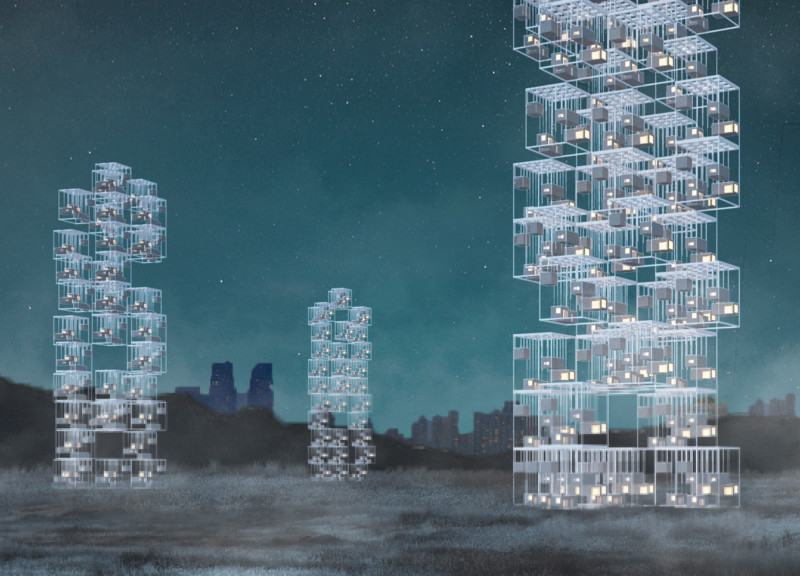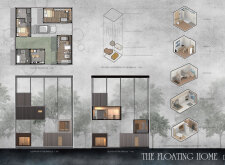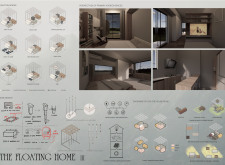5 key facts about this project
The Floating Home project presents an approach to modern living that focuses on modular design and flexibility. Set in both rural and urban contexts, the design aims to provide a practical and adaptable housing solution. By using a framework that allows modules to be suspended with towing rods, the layout supports movement and a versatile arrangement of spaces.
Modular Structure
The configuration includes different functional areas: two bedrooms, a living room, a kitchen, and a bathroom. This arrangement allows for various combinations, meeting the needs of different lifestyles. Each module can be moved to create private spaces, which is particularly relevant in today's climate of health concerns and social distancing.
Recreational Spaces
Rooftop and overhead areas are an essential part of the design. These spaces extend the home’s usable footprint and invite leisure activities. They also improve the home's airflow and temperature control. By connecting indoor and outdoor areas, the design encourages occupants to engage with nature while enjoying their living environment.
Adaptability to Context
The Floating Home is designed to fit into various surroundings. In rural areas, it complements the natural landscape, adding to visual interest. In urban regions, it provides semi-public spaces that encourage interactions between neighbors. This responsiveness highlights an understanding of diverse living needs and enhances community connections.
Sustainability Principles
There is a focus on sustainable design principles throughout the project. Although specific materials are not mentioned, the emphasis on disassembly and easy transport indicates a commitment to efficient construction practices. The modular design allows for quick assembly and reconfiguration, aligning with the need for adaptable housing solutions.
Expansive rooftop spaces enhance the connection to the outdoors, offering opportunities for gardening, relaxation, and social gatherings. These features create a seamless transition between the living spaces and the natural surroundings, fostering a sense of community and well-being.






















































